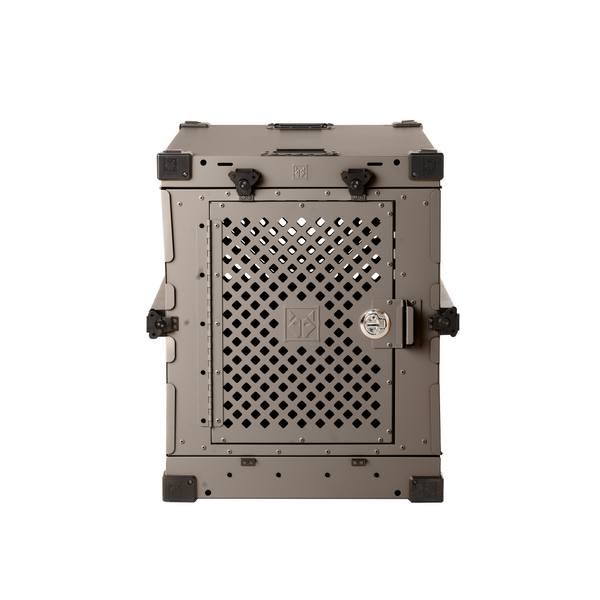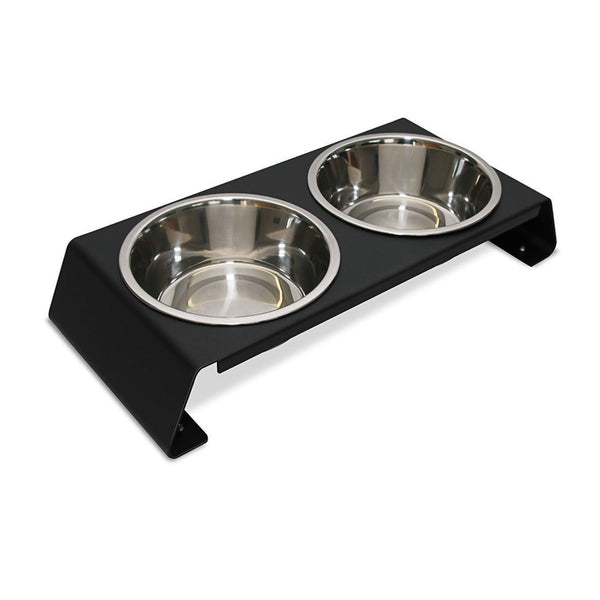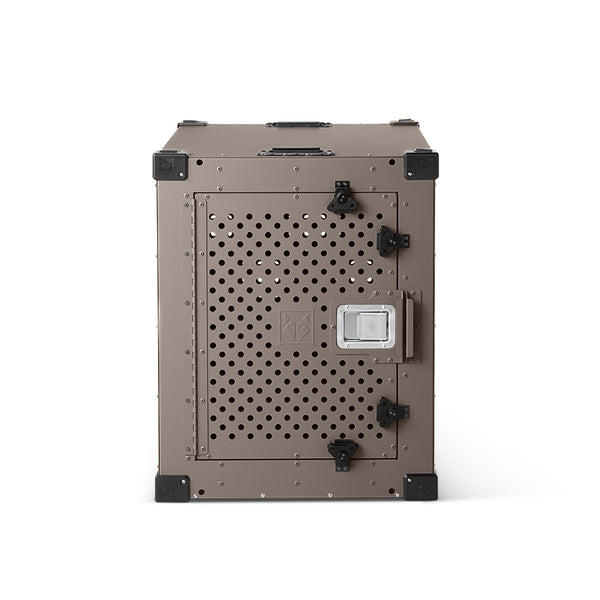Dog parents often get stunned after noticing specks of blood in their dog’s poop. According to Purina, if dog owners find bloodlines in their pet’s poop, then they must check its anus. The sad part is that the majority also have zero knowledge of tackling the situation. Yes, some cases can resolve themselves; however, there are instances that need immediate help. Otherwise, the consequences can also result in death.
Is your dog going through the same problem, and you panicked seeing blood in its poop? Relax, the blog is here to help you. We will discuss the types of blood, common causes, and how to manage the situation before things go beyond your control.
Types Of Blood In Stool
As a dog owner, who is new to this kind of health situation, it is important to be aware of the types of blood in stool. This helps you identify the seriousness of the scenario:
Hematochezia
Hematochezia is when bright red blood is present in your dog’s stool. Why bright red? The reason is that it has not travelled through the entire digestive procedure, therefore it will look fresh even making its way out of the body. This type hints that there is bleeding going on in the lower gastrointestinal tract. To be precise in the rectum or colon. Furthermore, the blood comes along with diarrhoea with a red-tinged appearance, so you will see your dog going to the bathroom many times. The quantity will be more than usual, and the texture can vary from a soft formed to a completely liquid state.
Apart from that, you need to keep in mind that mucus can also cover the stool, leaving the blood to appear on the outside.
Melena
Next in line is Melena. It is in the form of tarry and dark stool. You will say it resembles the grounds of coffee. The bleeding indicates that there is trouble going on in the upper gastrointestinal tract: stomach or small intestine
Occult Blood
Things can become tricky here as the occult blood is hidden in the stool and will not be visible. You will have to take the stool sample to the lab, and the tests will share the results with you. Hence, get your dog’s poop tested for your peace of mind.
What Are The Common Causes Of Blood In Dog Stool?
We understand that you must be super curious to know about the common causes of blood in dog stool. So, let’s spill the beans:
Problem In The Diet
Ate Something Wrong
It’s always possible that your dog ate something other than the usual meal. This can be toys, plants, or even your food, which must have disturbed its digestive system. The digestive tract is mainly affected, causing inflammation, also known as gastroenteritis.
Sudden Changes In Food
In the list of causes, sudden changes in food also lead to bloody poop in your dog. For instance, when you switch their wet food with a new one, chew toys, and treats that they are not used to digesting, can result in stool with blood.
Even if you do not give them the above, then having another pet’s food or eating an uncooked meal can also harm your dog in the same way. Your furry member has a sensitive digestive procedure that can easily lead to inflammation and bleeding in poop. Therefore, check what you are giving your pal to eat.
Food Allergies
As much as the ads for dog food look tempting, they can be troublesome as well. How? Many of the homemade or commercial dog foods are made out of certain ingredients which spark allergic reactions in your furry companion. At that time, it will eat and even ask for more, but later, you will be shocked to see the blood in its stool. Hence, it clearly means that your dog is intolerant towards those ingredients which results in inflammation and bleeding intestines. Therefore, recall the last thing they ate and avoid giving it in the future.
Infections
Bacterial Infections
When it comes to your dog pooping blood, then don’t forget that bacterial infections could be a cause too. The presence of Salmonella, E.coli, and even Campylobacter can infect your dog’s gastrointestinal tract, resulting in ulcers, bleeding, and inflammation. Hence, get your dog’s stool test to confirm the cause.
Viral Infections
Viral infections are also considered as one of the causes of your dog pooping blood. Which ones? Primarily, canine distemper and parvovirus are the culprits that give rise to extreme symptoms of gastrointestinal issues, including bloody diarrhea.
Infections From Parasites
Your dog’s stomach can get infections from parasites as well. Yes, parasites like whipworms, hookworms, and coccidia can make the intestinal lining its victim. As a result, whenever your dog poops, you will see blood in it. Hence if this is the cause, then you need to get in touch with the vet to tell you how to deal with the situation.
Inflammatory Bowel Disease
Inflammatory Bowel Disease or IBD enters the chronic condition. The disease is known to cause swelling in your dog’s gastrointestinal tract. Multiple symptoms such as vomiting, bloody stool, and diarrhoea happen due to it.
Consuming Objects
You train your children about what is meant to be eaten. In the same way, you have to teach your dog too. Because consuming objects like bones, toys, and socks can damage the intestines, forcing the poor fellow to poop blood. Hence, make your dog learn the difference between things it can and cannot eat.
Tumours
Your dog’s gastrointestinal tract can open the ground for tumours to grow. Be it benign or malignant, poop can contain blood in both cases. Therefore, you can take your pal to the vet to confirm the cause.
Issues In The Anal Gland
Another cause could be an issue in your dog’s anal gland as well. The problems can happen in the shape of infection or impaction. As long as the problem persists, your dog might continue to poop blood, Therefore, consult the vet so your dog’s stool can become normal again.
Colitis
If you are new to the term colitis, then let us tell you it is an inflammation of the colon. Colitis can have plenty of cases, including inflammatory bowel disease, dietary imbalance, blood in stool, and other infections.
Medicines
Is your dog on medications like non-steroidal anti-inflammatory drugs? Then, be prepared for the side effects because these medications can also play their part in causing stomach ulcers and bleeding in stool. Hence, speak to your vet regarding this matter and avoid making decisions on your own.
Issues Outside The Digestive Tract
Problems inside the digestive tract are not the only ones that cause your dog to poop blood and scare you. Issues outside its digestive tract can also be held equally responsible. For instance, your dog could be suffering from existing bleeding disorders, liver or kidney disease, cancer, hormonal disorders, poisoning from rodenticides, and immune system diseases. Therefore, if you found no faults inside the digestive tract, then there is a high chance that the problems are outside the tract.
Stress
Like humans, dogs take a lot of stress. Your dog can be stressed due to unfamiliar surroundings, new faces, loud noises, and especially when they sense that you are going away from them. The anxiety upsets their stomach and leads to bloody poop.
Can A Dog Poop Pure Blood?
Yes, your dog can poop pure blood as well. How? Sometimes, you may see your dog excrete just blood and no poop. This usually happens when your wagging tail’s gut is empty or the stool is pure liquid. Therefore, you can expect to witness blood in its litter.
What To Do When The Poop Has Blood?
If you spot blood in your dog’s poop, then here is what you have to do:
Observe And Write
Whenever you take your dog to poop, then observe the amount of stool he has released and the colour of the blood. Note down the particular shade of red because, as discussed above, there are types as well. The kind of colour will tell whether it is melena, occult or hematochezia.
After that, when they show signs of hunger, fill their food bowl with the particular meal and pay close attention to the quantity you give them. Once they have eaten, take note of their behaviour. For instance, do they become active or vomit? If they do the latter, you should also check for other signs, such as lethargy, fever, and diarrhoea.
Contact Your Vet
When you see your dog pooping immense blood or showing other signs, then kindly contact your vet. Your pet needs professional help, and the vet will tell you better how to go about it.
Follow What The Vet Says
Once your vet observes your dog’s condition, they might probably do a physical examination of your pet. With some blood tests, you will also need to provide stool samples for the doctor to run the related tests. In this way, the vet will find it easier to diagnose the main cause of bleeding and inform you.
Furthermore, the diagnosis will clear things like what treatment will be necessary here, the medications involved, and whether you need to make any specific changes in your dog’s food. Plus, you should be prepared to admit your dog for surgery if the vet thinks that will be required. Therefore, don’t take the matter lightly and follow what the doctor says.
Ways To Diagnose Blood In Poop
Vets use multiple ways to diagnose blood in poop. These are in the shape of physical examinations and other tests to check signs of abdominal pain, dehydration, and fever. Apart from that, they can recommend you do the following as well:
Blood Tests
Blood tests play a crucial role in assessing organ functions, identifying the exact infections, and checking the electrolyte levels. Hence, this test is important to know why your dog pooped blood.
Stool Analysis
Then, the vets may ask you to get a stool sample of your furry fellow. They will place it under the microscopic lens to check for bacteria, parasites, or other viruses. This gives you a better idea of whether the bacteria is troubling your dog’s intestines or not.
Imaging Tests
Imaging tests are X-rays or ultrasounds. The vets suggest this to assess whether internal organs are working normally or if there are any abnormalities resulting in your dog’s bloody poop. The visuals can show you the problematic area.
Endoscopy
You must have come across an endoscopy. This is another way of diagnosing blood in your dog’s poop, where the vets put the camera inside the dog to see the lining of the digestive tract. It assists them in learning whether the problem is within the tract or not.
How To Treat The Bloody Poop?
The cause of the bloody stool determines the type of treatment necessary for your dog. However, the most common ones are as follows:
Change The Diet
If you were giving fatty foods to your furry fellow, then the vet may probably recommend you to change their diet. They might tell you to start feeding them bland meals consisting of boiled chicken and rice. This food will help to relax their digestive tract, leading to a normal brown poop.
Medications
Medications vary according to diagnosis. Therefore, looking at your dog’s condition, the vet may prescribe the following medicines:
Antibiotics
The medicine helps to treat bacterial infections.
Antiparasitics
If parasites have attacked your dog’s intestinal lining, then antiparasitics assist in eradicating parasites.
Anti-inflammatory Drugs
All the causes above swell your dog’s digestive tract. Therefore, anti-inflammatory drugs reduce inflammation, resulting in normal stool.
Probiotics and Prebiotics
After going through so much, your dog’s gut microbiome becomes sensitive. Therefore the vet will suggest you give it probiotics and prebiotics to make the microbiome healthy again.
Fluid Therapy
This condition also increases your dog's dehydration. As a result, the vet may suggest that you buy the particular intravenous fluids as part of fluid therapy. This will at least reduce the signs of dehydration.
Surgery
When your dog has consumed toys or garbage, surgery becomes necessary. The same theory applies to tumours or to repairing damages in the tract responsible for digestion. Therefore, if your vet recommends surgery, don’t delay.
Can You Take Care At Home?
Yes, you can take care of your dog’s bloody poop at home as well. How? In the following ways:
Follow Your Vet’s Instructions
Follow the veterinarian's prescription closely and adhere to all instructions. If they recommend dietary changes or activity restrictions, ensure those are followed diligently. The same applies to medications—it’s crucial not to make any compromises here.
Monitor Your Dog
As soon as your dog wakes up to other activities, try your best to monitor your dog. Keeping a close eye will help you know whether your dog is normal. If you notice any unusual behaviour, then you can immediately contact your vet.
Keep Them Hydrated
Your best friend has been through a tough situation; therefore, keep them hydrated all the time. Make sure their water bowl is filled with fresh water, and when they ask for more, quickly refill it. This also helps them regain strength and improves their stool colour.
No Stress
Don’t give any reason for our dog to stress about. Otherwise, they will keep pooping blood. Therefore, there is no stress as then only there will be no issues in the digestive tract.
Suggestions For Preventing Dog’s Bloody Poop
You can always prevent your dog from doing a bloody poop. We have shared a few suggestions for your convenience. They are as follows:
Regular Checkups
Bring your dog to the vet for routine checkups. Ensure your furry friend receives vaccinations promptly to prevent parasites in that area.
Good Diet
Don’t just give anything to your dog to eat. Plan a proper and good diet that consists of essential vitamins and minerals. Go to your nearest store and buy some high-quality dog food cans. Kindly make sure that the food is for your dog’s age and breed. Otherwise, they will poop in the same way again. Hence, be careful and vigilant at your end.
Keep Away From Harmful Items
Keep your dog away from harmful items, especially the ones that they cannot eat. For instance, toys, plants, human food, and sticks. These can damage their digestive tract and intestinal lining as well. Hence, remove all these items or keep them somewhere that your dog cannot reach.
See How They Eat
As a dog parent, you would not like to see your dog skipping meals due to bloody poop. Therefore, whenever you fill their bowl, sit with them and see how they eat. Tell them politely to eat slowly. Otherwise, their fast gulping will cause problems in their digestion, and you will find blood again in the poop. So, make sure this does not happen.
Conclusion
Now you know the common causes behind dog pooping blood and how to deal with the situation. Therefore, if you see blood streaks in the stool, then hurry to the vet and follow whatever they say.






